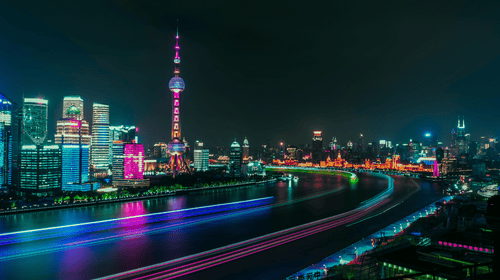It seems like lately, everywhere I look I’m seeing brands promoting their green and sustainable initiatives. More and more brands are taking up the green charge. It’s something that’s on the agenda of most of my clients. I believe everyone is recognising that we are at a tipping point here in Australia. With the release of the UN’s scathing report on climate change, Australians are taking notice like never before. This is backed by report after report quoting Australian consumers believe brands should be accountable for their impact on our planet. Additionally, our young consumers –Gen Z – they’re really demanding change and action. It’s been reported that Gen Z’s expect brands to make a difference and will only purchase from those that are doing good for the environment, they’re even willing to pay more for sustainable products.
Going green has recently intensified as people are recognising that change and improvement are imperative for our future. We’re seeing and hearing consumers say that if brands aren’t operating in a sustainable way, that they’ll become irrelevant to today’s consumers. Brands are recognising this, so sustainability messaging is considered high priority and sustainable practice has become a critical boardroom conversation. However, brands must be careful to not embellish, or consumers will call them out for greenwashing. Consumers want brands to demonstrate proof – to show, not tell. Truth in marketing has never been more critical.
Sustainability is a complex issue and many businesses that are doing good for the environment struggle to share a compelling story or are afraid of communicating about it for fear of backlash. Businesses also worry they aren’t doing enough, that their supply chain isn’t perfect, or that they don’t have 100% traceability – the list of concerns goes on. But actually, authenticity and transparency of practice goes a long way. In fact, this is the time for radical transparency. Most consumers don’t expect brands to get it 100% right overnight. Sustainable practice is a journey and one that has to start from the top and run right through all aspects of a business.
So, what makes a great sustainability campaign? Approaching green initiatives isn’t too different to creating a campaign to generate awareness and sales. Our team of strategic and creative thinkers agree that there are two key elements that are probably the most important. Aside from getting your targeting right, ensuring you have a unique position and singular, insightful messaging, you will want to make sure you double down on these two aspects:
Truth & Trust – Are you on purpose and are you able to demonstrate authenticity?
Simply drawing attention to an issue or saying you are sustainable is not enough. Brands need to have a unified goal that drives their daily actions. Commitment to sustainability needs to run through every department and aspect of the business. Setting goals and establishing strategies to progress towards those goals is important to communicate to a brands audience.
Generating feelings – Is your campaign emotive?
Stats and facts have their place, and we love them to help quantify, demonstrate, prove a situation, and build credibility and belief. But, as with most marketing and advertising campaigns, effectiveness skyrockets when not only the head is engaged, but also the heart. Sustainability messages will go further if they resonate emotionally and communicate clearly how a brand’s efforts really will make lives and the planet better.
With these two key attributes of creating great green campaigns in mind, let’s look at some of the top sustainability campaigns from around the world as well as here in Australia.
Unilever- Establishing Truth & Trust with Extreme Purpose:
Unilever has demonstrated a deep commitment to sustainability over the years. They’ve made sustainability the cornerstone of their mission with very clear and transparent goals. Check out the “Unilever Sustainable Living Plan.” This video also highlights their renewed commitment to the plan:
Volvo- The Ultimate Safety Test:
Another favourite brand, Volvo, demonstrates a great example of purpose. They have created a “pun intended” to demonstrate how their deep commitment to safety extends even to the macro level of the safety of our planet.
Patagonia- Black Friday:
Representing the clothing industry, the adventure and outdoor brand, Patagonia, has been at the forefront of sustainable action since its inception. In 2016, Patagonia announced that it would donate 100% of its Black Friday sales to non-profit organisations working to protect our air, water, and soil for future generations. Consumers rallied in support. The brand forecast sales of $2million to be attributed to this campaign, but it dramatically exceeded expectations with record breaking $10million in sales.

Apple- A climate change promise:
I’m a sucker for a tearjerker or anything that pulls at the heart strings. As a parent, I appreciate the approach to this ad from Apple and the promise they make to ‘Edan.’ I’d like to see them address their part in driving consumerism with regards to product updates and cannibalism, but that’s a separate piece – in terms of making a commitment to the sustainability cause, this was done well and according to the various reviews I’ve read, this ad is not full of overpromise.
General Motors- Super Bowl:
But then there’s the other emotion that really triggers awareness and action – humour! The car industry seems to really be going for it with their sustainable messaging Will Farrell is fired up that Norway sells more Electric Vehicles than the US. He’s on a mission in his General Motors EV:
Lastly, here are two ads from Aussie brands that we think have done an excellent job in highlighting their commitment and where they are on their journey.
Coles- Together to Zero:
The recent advertisement highlights the important role that all citizens of Australia play in making the world a better place for future generations. The video demonstrates that Coles is on a journey to minimise its environmental impact. The music, voiceover and images highlight what the brand is doing now and where it aims to be by 2050. To support this messaging, Coles has taken further steps to reduce its use of unnecessary plastic. It recently reviewed its marketing campaigns and has committed to no longer giving away plastic collectible toys.
VB- Solar:
In 2019 Victoria Bitter launched a TV commercial which announced that its beer will be brewed with 100% offset solar electricity. The TV ad had a cheeky reminder for viewers – “the next time the sun is making you hot, just remember it’ll also be making you a cold one.”. As a brand that is manufactured in Australia, it needed to do its bit to protect the environment and ensure it can continue brewing for centuries to come. That’s why I love this campaign so much, it brings the brand into the 21st century, shifting it to relevancy and a credible choice for today’s consumers. The advertisement is well written and will cause consumers to feel good about themselves, when they drink VB as they know they are protecting the environment.
One of the things we’re passionate about at TEAM LEWIS is helping businesses overcome their sustainability communication barriers, so they can effectively articulate their commitments – even if the brand is just getting started on their journey to a more sustainable practice. Sustainability is so important, and we are seeing more and more organisations making changes to their marketing strategies to ensure they protect the environment and effectively communicate their sustainability commitments.
Related content: Sustainability Now Australia Report
To learn more from TEAM LEWIS’ expertise on the art of communicating sustainability, get in touch with us today.



